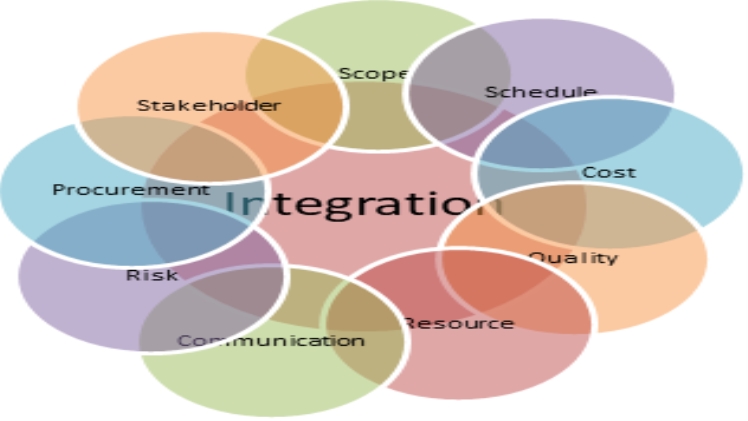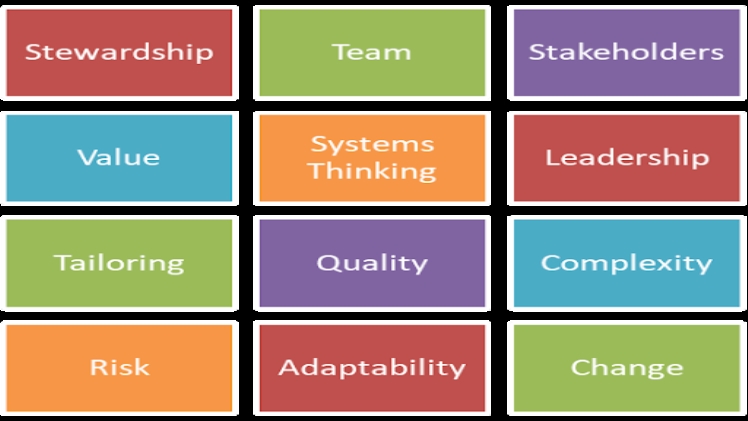There seems to have erupted a lot of chaos on how to prepare for PMP Exam after release of PMBOK Guide 7th Edition. Moreover, we have been receiving a lot of questions pertaining to this concern and others but related. We thought of covering all these issues, and as a result of brainstorming, this article has been created. This article covers the following in broader terms:
- Is PMBOK Guide 7th Edition a go to reference book for PMP Exam?
- Is the PMBOK Guide 6th Edition still relevant?
- How is the ECO affecting the PMP Exam?
PMBOK Guide 7th Edition
PMBOK Guide 7th Edition compliments PMBOK Guide 6th Edition. The technological evolution has changed the way(s) of working in all the domains across the industries and project management is no exception. This has been proven right with pandemic hitting hard. Organizations have started looking out for a better way of handling such situations in general and managing projects in particular.
PMI has been working hard for more than couple of years to create new edition of PMBOK Guide. They have released the new edition of PMBOK Guide which is called as PMBOK Guide 7th Edition. This guide is a direct result of feedback received from managers across the industries and around the world. The feedback was based more on improving the 6th edition for content and structure considering the present and future trend in the areas of managing projects.
7th edition is based on the principles. There are 12 principles which are part of The Standard Of Project Management. The 12 Principles are illustrated in Figure 1.
Besides these principles, there are 8 performance domains which are part of A Guide To The Project Management Body Of Knowledge. The 8 Performance Domains are illustrated in Figure 2:
This new edition does not have any impact on the preparation of the PMP Exam. Like any other reference books, as mentioned in PMP Exam Reference List, 7th edition can also be treated as one of the reference books. The Models, Methods and Artifacts section of the guide provides a summarized version of different tools & techniques used in managing projects. This section comes in handy as it provides snapshot information. There is a separate section dedicated to tailoring. PMBOK Guide 7th Edition is an addition to the list of reference books for Preparing the PMP Exam as per the new examination content outline.
PMBOK Guide 6th Edition
PMBOK Guide 6th Edition along with Agile Practice Guide was originally published and released in September, 2017. This guide was an update to the PMBOK Guide 5th Edition and included 49 Processes as against 47 Processes in 5th Edition.
The 6th edition is purely process based and divided into 2 sections: The Guide To The Project Management Body Of Knowledge and The Standard Of Project Management. The Guide elaborated the 49 processes based on Knowledge Areas.
Knowledge Areas:

- Project Scope Management: It includes all the processes ensuring to complete/finish the project within the approved scope.
- Project Schedule Management: It includes all the processes ensuring to complete/finish the project in the approved time.
- Project Cost Management: It includes all the processes ensuring to complete/finish the project within the approved budget.
- Project Quality Management: It includes all the processes ensuring to implement the quality policy of the organization.
- Project Resource Management: It includes all the processes to optimally managing all the resources required by the project.
- Project Communications Management: It includes all the processes to manage effectively and efficiently the communication needs of all the stakeholders involved in the project.
- Project Risk Management: It includes all the processes to contain the risks in the project.
- Project Procurement Management: It includes all the processes required to cater the purchasing/buying needs for the project.
- Project Stakeholder Management: It includes all the processes required to manage the needs and expectations of all the stakeholders of the project.
- Project Integration Management: It includes all the processes required to integrate all the processes defined in above 9 project management knowledge areas.
The Standard elaborated these processes based on 5 process groups which are briefly described below. The PMP Exam Pattern prior to January 2nd, 2021 was based on these groups or performance domains.
Process Groups:
- Initiating Process Group: This includes all the processes which are required to define and initiate a new project or a new phase of an existing project.
- Planning Process Group: This includes all the processes which are required to plan the project including establishing the scope, schedule, cost, quality, resources, communication, stakeholders, risk, and procurement.
- Executing Process Group: This includes all the processes which are required to carry out the work as planned in the planning process group.
- Monitoring & Controlling Process Group: This includes all the processes which are required to monitor and control the progress and performance of the project as per the project plan defined in the planning process group.
- Closing Process Group: This includes all the processes which are required to close the project.
In addition to these 2 sections, the 6th Edition also covers the environment in which projects are operated and an entire chapter dedicated to the role of project manager.
PMBOK 6th Edition vs PMBOK 7th Edition
PMI Talent Triangle
PMI defined the skills needed by the project manager through the use of The PMI Talent Triangle. The Talent Triangle focuses on three key skill sets:
- Technical Project Management: This dimension of the triangle relates to the technical aspect of performing one’s role as project manager.
- Leadership: This dimension of the triangle relates to the behavioural aspect of performing one’s role as project manager.
- Strategic and Business Management: This dimension of the triangle relates to applying the strategic & business acumen aspect of performing one’s role of project manager.
What Is New ECO (Examination Content Outline)
The exam pattern is changed from January 2nd 2021. This new pattern or Examination Content Outline (ECO) documents the domains, tasks and enablers. Their definitions are taken from PMI and as mentioned below.
- Domains are defined as the high-level knowledge areas that are essential to the practice of project management.
- Tasks are the underlying responsibilities of the project manager within each domain area.
- Enablers are the work associated with the tasks.
There are 3 Domains as per the New ECO:
- People: Emphasizing the soft skills, managers need to effectively lead a project team in today’s changing environment. The tasks in this domain will assist project managers to create a high performing team and keep the team on track.
- Process: Reinforcing the technical aspects of successfully managing projects. The tasks in this domain will assist the project manager to start the project and do the work.
- Business Environment: Highlighting the connection between projects and organization strategy. The tasks in this domain will assist the project manager to keep the business aspect in mind while executing the project.
These 3 domains are loosely associated with the 3 dimensions of PMI Talent Triangle. People’s domain can be said to be associated with the Leadership dimension of the triangle, Process with the Technical Project Management and Business Environment with the Strategic & Business Management dimension of the talent triangle.
These three domains provide a framework for executing projects in predictive, agile and hybrid environments. Each PMP examination will include all tasks for a domain. Figure 6 shows an example of the new task structure:
The example illustrates that 5 enablers will be required to complete the task of managing conflict under people’s domain.
There are 14 tasks under people domain, 17 tasks under process domain, and 5 tasks under business environment domain.
Conclusion
Techcanvass’s Recommendation
The new ECO is based on the PMBOK Guide 6th Edition and Agile Practice Guide. These are two major reference books for PMP Exam Preparation. Besides these two, there is a list of reference books provided on pmi.org. Although performance domains have been changed from 5 process groups of old ECO to 3 domains of new ECO; there is a direct correlation between the new ECO and PMBOK Guide 6th Edition. Consider the above example of Task Manage Conflict which is a part of People Domain as per new ECO. This task can be traced back to the Manage Team Process of Project Resource Management Knowledge Area and Executing Process Group. (Refer Table 1-4. Project Management Process Group and Knowledge Area Mapping of PMBOK Guide 6th Edition). The PMBOK Guide 7th Edition is an addition to the list of reference books for PMP Exam Preparation. The new ECO provides a structure/pattern for PMP Exam; however, one of the most crucial reference books to prepare for PMP Exam is PMBOK Guide 6th Edition.
Techcanvass is an IIBA Endorsed Education Provider (EEP) and offers Project Management Professional, CBAP, CCBA, AAC, CBDA and ECBA Certification training programs. Our training programs are well rounded programs and are not limited to training only. We have developed question banks, Study Guides, Mind Maps, Audio Books and a lot more. We have also started certification programs in Tableau and Power BI. Check out all the details at Techcanvass Website.
About the Author:
Chetan Sharma is a professional digital marketer and blogger at heart. He owns multiple educational blogs like HSSLIVE and many others.

